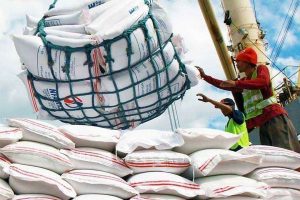OPPOSITION congressmen on Tuesday criticized President Ferdinand R. Marcos, Jr.’s executive orders (EO) aimed at supporting rice farmers, calling them short-sighted and urging broader reforms to strengthen the country’s agriculture and food sector.
The Marcos administration’s EO No. 100 and No. 101 lack teeth and fall short of empowering the government to meaningfully support the rice industry, Deputy Minority Leader and Party-list Rep. Antonio L. Tinio said.
“[They are] nothing but empty rhetoric that fails to address the root cause of our agricultural crisis,” he told a news briefing in Filipino.
EO No. 100 will set a yet-to-be-determined regional floor price for unmilled rice, while EO No. 101 directs all government agencies, state universities and local governments to buy food directly from accredited farm and fisherfolk cooperatives.
In mid-October, the Department of Agriculture reported an average price for locally well-milled rice of P42.72 per kilo, with regular-milled rice fetching P37.30. The average per kilo of local special rice stood at P56.92.
“If the government truly wants to lower the price of rice, it should strengthen local production and directly purchase palay at a fair price of at least P20 per kilo,” Mr. Tinio said.
He said the executive orders won’t be implemented effectively, citing the government’s lack of rice mills and storage facilities. Local government units also “have no clear mandate to purchase palay” under the order, he added.
The Marcos administration should instead focus on reinstating the government’s ability to buy rice directly from producers, an authority that was revoked under a 2019 law that liberalized the rice industry, Mr. Tinio said.
“The real and immediate solution is to scrap the rice liberalization law and bring back the regulatory powers of the National Food Authority, its mandate and budget to directly purchase palay from farmers at living and just prices,” he said.
Party-list Rep. Sarah Jane Elago said the government should also look at mandating local governments to buy at least 20% of local palay production from farmers directly, while also allotting state funding for agricultural subsidies aimed at supporting industry growth.
“Those are what we look forward to,” she told the same briefing. — Kenneth Christiane L. Basilio

















